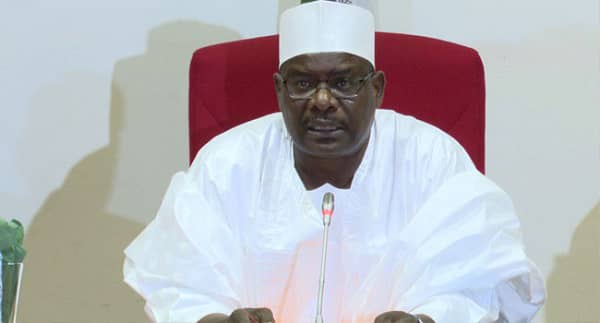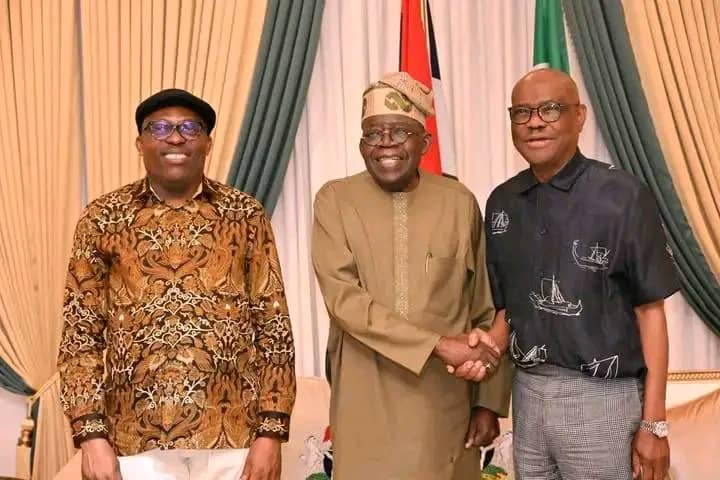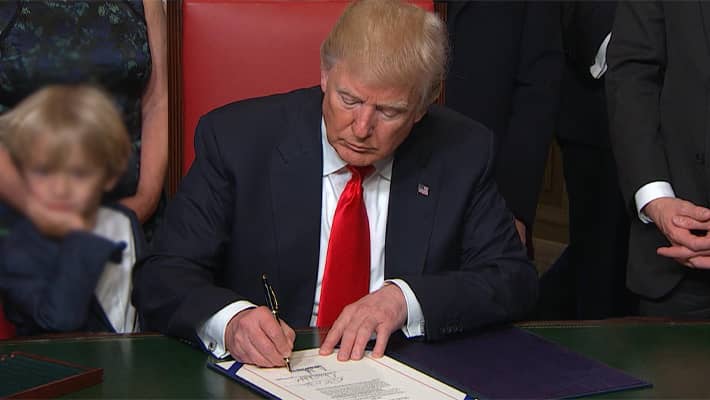Senator Ali Ndume has come under sharp criticism following recent comments made on national television that many observers have described as reckless and damaging to the integrity of political discourse in Nigeria.
The senator, known for his outspoken views, has been accused of engaging in what some term “politics of disloyalty,” with commentators pointing to a pattern of behaviour that undermines not only his party but the broader democratic framework.
Ndume, a senior figure in the All Progressives Congress (APC), recently defended his series of verbal attacks on President Bola Tinubu and key members of the administration. During his appearance on television, Ndume attempted to justify his comments by referencing U.S. Republican Senator Jeff Flake’s long speech condemning former President Donald Trump’s immigration policies. However, critics argue that the comparison is both flawed and misleading.
The commentary, written by public affairs analyst ESV Bukola Ajisola, challenged Ndume’s analogy by highlighting the key differences between the political contexts of the United States and Nigeria. Ajisola noted that while Jeff Flake was vilified by Trump and ultimately opted not to seek re-election, Ndume continues to enjoy unrestrained access to media platforms and public forums in Nigeria despite his provocations.
Ajisola also referenced Ndume’s prior disparaging remarks in which he referred to one of the president’s aides as a “domestic servant” and a “mega dog”—phrases that have no clear political meaning and have been widely criticized as demeaning and unproductive. Despite these comments, the Nigerian government has refrained from taking any public disciplinary action against the senator, a decision Ajisola credits to President Tinubu’s “cultured and restrained” leadership style.
The piece goes on to criticize what it calls a “colonial carryover mentality,” whereby Nigerian elites glorify controversial behaviour in Western politics but reject efforts to enforce discipline and accountability within Nigeria’s political environment. According to the writer, Ndume’s actions reflect a broader culture among the privileged political class of emulating the worst aspects of foreign political conduct while dismissing homegrown attempts at governance reform.
Ajisola further questioned the senator’s past record, particularly his response to the recently signed Tax Reform Bills. Ndume had called the bills “dead on arrival” and openly stated he would not read them—comments that have sparked questions about his commitment to legislative duties and policymaking. The article argues that such statements demonstrate a disregard for informed debate and a troubling aversion to detailed legislative engagement.
The writer also pointed to a case involving Democratic U.S. Senator Alex Padilla, who was reportedly handcuffed and removed from a news conference after seeking to speak with Homeland Security Secretary Kristi Noem. Although Padilla’s case has not been widely verified by major U.S. outlets, the example was used to contrast how political dissent is treated elsewhere versus the freedom currently enjoyed by Ndume in Nigeria.
Ajisola warned that while constructive criticism of government is vital for democracy, it must be rooted in logic, data, and informed analysis. He labelled Ndume’s approach as lacking in intellectual substance and ultimately counterproductive to governance. The article suggests that media platforms should shift focus from merely amplifying political outbursts to critically examining the contributions politicians like Ndume have made to their constituencies.
“Television anchors need to start asking the hard questions,” Ajisola wrote. “What has Ndume delivered to his constituents? What tangible benefits has he brought to Borno South? These are the issues that should dominate the conversation, not his endless pontifications and attempts to destabilize the federal government.”
The article also highlights Ndume’s chequered political history, noting his shifts between the Congress for Progressive Change (CPC), the People’s Democratic Party (PDP), and the APC. This pattern, according to the writer, reflects an opportunistic brand of politics shaped more by personal ambition than ideological consistency.
The broader implication of Ajisola’s critique is a call for a more informed and responsible political culture in Nigeria—one that values loyalty, discipline, and service delivery over sensationalism and antagonism. He concludes by urging the public and media to hold politicians accountable not just for what they say, but for what they do for the people who elect them.





